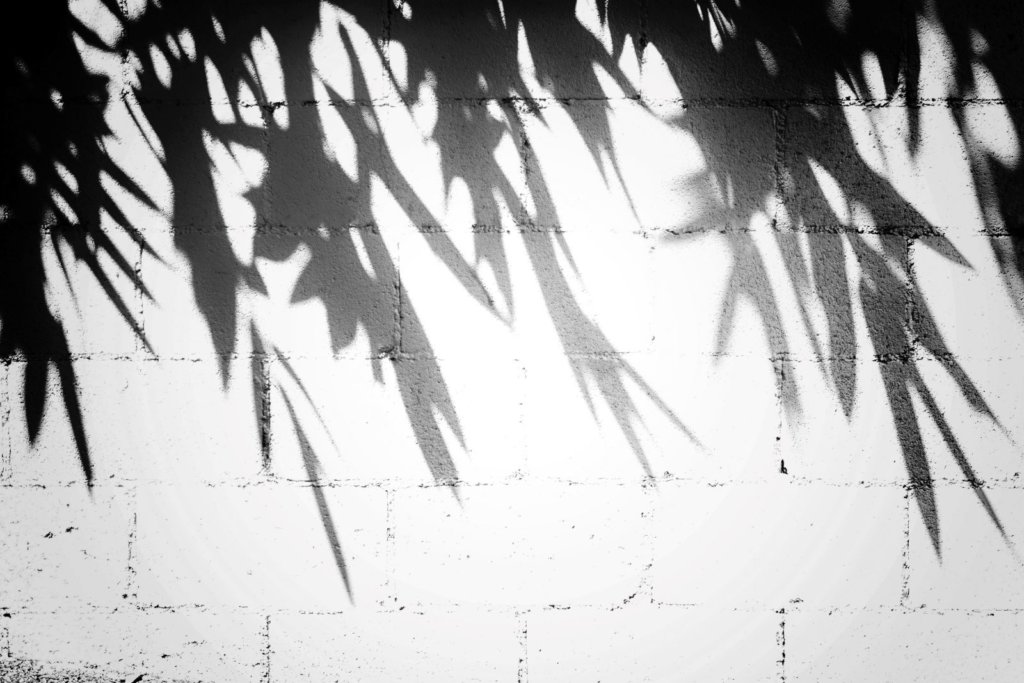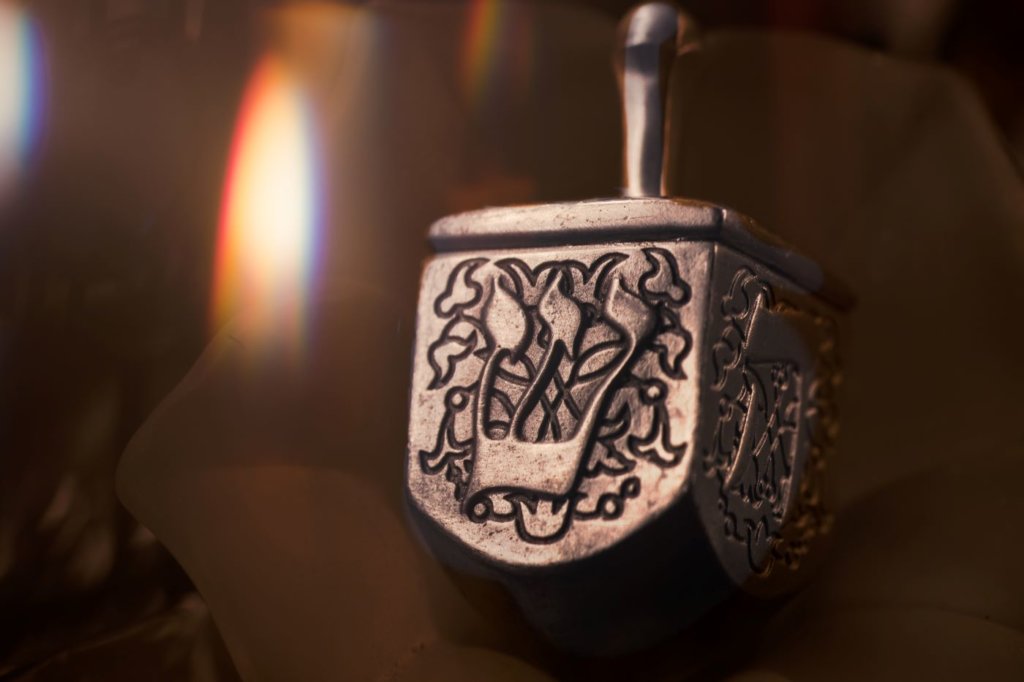On Saturday I sat in the backseat of a car with a moon roof. I stared up at the sky and noticed a rainbow hidden in the clouds. I lowered my sunglasses because usually, that helps me see colors better but, in this case, I was surprised. Leaving my sunglasses on helped me more clearly see the rainbow. It blew my mind a little, to be honest.
We talk a lot about darkness and associate it with bad or evil things. Darkness is something to be scared of, it’s dangerous. But is that always true? Seeing this rainbow through my sunglasses reminded me sometimes darkness is illuminating. That happened for me this week not only with a rainbow but also with a better understanding of trauma.
When I first heard the news about antisemitic banners hanging over an LA freeway, my response was, “Where will I run?” That’s not rational or reasonable. No one was chasing me! Furthermore, I’ve never directly experienced antisemitism – no one has called me names for wearing a Jewish star or bullied me online. So where did this response come from? It’s a bodily memory from my ancestors.

The rainbow I saw wasn’t nearly this defined but you get an idea of what I saw. Photo by Mathias Reding on Unsplash
My maternal ancestors lived in Eastern Europe and even before the Holocaust, it wasn’t free of antisemitism. I don’t know much about them, but I do know about my grandparents – both of whom were Holocaust survivors. They both had horrific experiences, but I think my, “Where will I run?” response comes from my grandmother.
During World War II, she dug her way through the ground floor of a Lithuanian ghetto and escaped via a sewer line into the woods. In other words, she ran. To my surprise, when I encounter antisemitism in places I don’t expect, like an LA freeway, that same response shows up in me. My “lizard brain” gets activated. We all have this brain, it’s our limbic system, and it doesn’t respond to logic or reason. The limbic system scans all sensory inputs and responds in a fraction of a second by letting them into the cortex, the thinking part of the brain, or initiating the fight, flight, freeze, or fawn response.
As trauma-therapist Resmaa Menakem writes in his book My Grandmother’s Hands, “This mechanism allows our lizard brain to override our thinking brain whenever it senses real or imagined danger. It blocks any information from reaching our thinking brain until after it has sent a message to fight, flee, or freeze.”
In other words, you can’t reason with your lizard brain. It just responds. What I hadn’t realized, and what I think many people also don’t understand, is that when it comes to big issues, the “isms” and “phobias” we’re facing right now, you can’t reason those away. It might work with some people to explain why racism is harmful to everybody, including white people, but if a white-bodied person feels fear or anger in their nervous system when they encounter a melanated body, logic goes out the window and racism continues.

Shadows can offer a new perspective sometimes. Photo by Tim Mossholder on Unsplash
Similarly, emotional appeals will also only take you so far. Just after George Floyd’s murder, there was a surge of interest in antiracism. Emotions ran high and people purchased books and enrolled in classes more than they had before. But now, those classes and courses aren’t garnering as much interest or attention because emotion faded. But the body remembers. Menakem argues, “If we are to survive as a country, it is inside our bodies where this conflict will need to be resolved.”
After this week and experiencing my own version of alienation and othering, I agree. I can’t reason with people why antisemitic tropes are malarkey. I can’t emotionally convey why staying silent in the face of antisemitism is terrifying for me as a Jewish person. If you don’t get it, I can’t make you get it. What I can do though, is heal my own trauma.
When we do so we make room for growth in our nervous systems and that spreads. It’s like emotional contagion, but instead of emotion, something even more powerful. This isn’t a task relegated to oppressed groups, by the way. Every group has its own brand of trauma including white people. Responding with rage and aggression in the presence of an oppressed group is evidence of that.
Darkness revealed a lot to me this week. And not only a rainbow.
I dream of a world where we recognize logic and emotion only takes us so far. A world where we understand the power of trauma and create more space and peace within our nervous systems. A world where we confront our shadow to make the world a better place for ourselves and others. A world where we understand not only is light illuminating, so is the dark.
Another world is not only possible, it’s probable.
Right now it’s Hanukkah, which is a holiday I celebrate because I’m Jewish. There’s a part of me that feels nervous publicly stating I’m Jewish given the current rise of antisemitism. But then I remind myself people already know I’m Jewish. I’ve never hidden that before so why would I start now? And in fact, that’s precisely the story of Hanukkah.
Some people think of Hanukkah as the “Jewish Christmas” because hello, we live in a capitalistic culture so it’s all about the gifts, right? Other people vaguely know Hanukkah as a celebration of oil lasting for eight days. That legend was tacked on later to make Hanukkah seem more miraculous. In actuality, Hanukkah is the celebration of people unifying against oppression and winning.
Judah and the Maccabees revolted against Syrian King Antiochus who enacted a series of harsh decrees against the Jews, including forcing them to give so much of their crops to the Syrian ruling class, the Jews had trouble feeding their families. Jewish worship was forbidden; scrolls were confiscated and burned. Sabbath and the dietary laws were prohibited under penalty of death. The small group of Jewish rebels fought against an army of thousands of men and won. How did they win? According to my rabbi, Michael Lerner, they won in part because they believed there is something about the universe that makes such struggles winnable.

In case you didn’t know, this image shows a dreidel. It’s used in a game Jews play on Hanukkah. Photo by Robert Zunikoff on Unsplash
In a Hanukkah message, he wrote that “something,” that force, is celebrated when we light candles for Hanukkah or when Christians light candles for Christmas.
“Hanukkah is not just about having a response to the consumption craze around Christmas, it is about affirming a different worldview, a hopeful worldview. [It’s] about replacing cultures of domination with a culture of love and justice,” Rabbi Lerner wrote. “[Hanukkah is also about] recognizing that alternative is not yet fully articulated in the Jewish world and needs all of us to make it clearer not only to the larger world, but to our own communities, synagogues, and Jewish organizations.”
This Hanukkah I’m reminded of what it means to be Jewish: to struggle and to overcome. To be a minority fighting for justice. To join other minorities in doing the same. This Hanukkah I’m also reminded we can win. It seems grim or even impossible that we can wrest power from the wealthy elite hellbent on destroying us all for their own gain. It seems daunting to dismantle racism, sexism, homophobia, and other prejudice, but it can be done. A small but mighty few can accomplish just that.
To paraphrase my spiritual teacher, the strength of five good people is more than the united strength of a hundred immoral people. It also echoes the famous Margaret Mead quote: “Never doubt that a small group of thoughtful, committed citizens can change the world; indeed, it’s the only thing that ever has.” Let’s continue to be thoughtful, committed, organized citizens changing the world. Let’s remember battles that seemed unwinnable have been won, and in fact, that’s what Jews across the world are currently celebrating.
I dream of a world where we recognize there is a transformative force in the universe that makes liberation possible. A world where we recognize a small but mighty group of organized people can overthrow authoritarian regimes. A world where we band together, letting our collective light shine and say “no” to the people who try to keep us down.
Another world is not only possible, it’s probable.